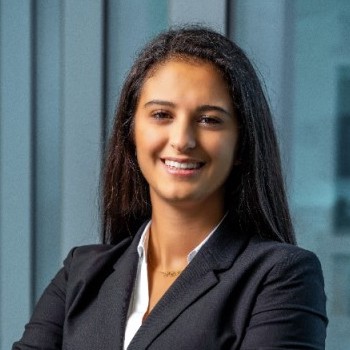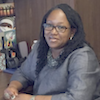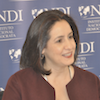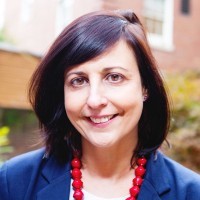|
BUILD YOUR CAREER
July 13, 2021 | Watch Video
Michelle Abou-Raad, Strategy& Sef Ashiagbor, National Democratic Institute Diorella Islas, Jaguar Exploración y Producción Deborah Ullmer, National Democratic Institute Ariela Blätter, WIIS (Moderator) WFPG and WIIS hosted management consultant Michelle Abou-Raad, political parties expert Sef Ashiagbor, security specialist Diorella Islas, and democracy and human rights expert expert Deborah Ullmer for a discussion on field work and working abroad. During a conversation moderated by Ariela Blätter the panelists covered the variety of opportunities available, what skills are necessary, considerations and logistics, and tips on adapting to a new environment. Following the opening session, participants moved to interactive breakout sessions with the panelists where they could ask their own questions. This program was a part of our Professional Development Series co-hosted by Women In International Security. Members can watch a recording here or on our Member Career Resources page. Key Takeaways Types of Opportunities
Key Skills
Logistics
Adapting and Making the Most of Your Experience
Thank you to our speakers!  Michelle Abou-Raad has been working in management consulting for the last two years at Strategy& (part of the PwC network) in Dubai, where she has worked with public and private sector clients throughout the Gulf in industries ranging from telecommunications to culture. Previously, she worked on governance projects in the Middle East for Creative Associates International. She is a Co-Founder and Board Member of Urban Refuge, a phone application aid locator that aims to help urban refugees and vulnerable individuals access aid and services. She has also researched vocational programming for refugee women and has written articles and given talks to raise awareness on forced migration. Michelle is taking a one-year sabbatical as a Luce Scholar in Thailand, where she will work with a local social enterprise and study Thai. She holds a BA in International Relations and Middle East & North Africa Studies from Boston University. Michelle Abou-Raad has been working in management consulting for the last two years at Strategy& (part of the PwC network) in Dubai, where she has worked with public and private sector clients throughout the Gulf in industries ranging from telecommunications to culture. Previously, she worked on governance projects in the Middle East for Creative Associates International. She is a Co-Founder and Board Member of Urban Refuge, a phone application aid locator that aims to help urban refugees and vulnerable individuals access aid and services. She has also researched vocational programming for refugee women and has written articles and given talks to raise awareness on forced migration. Michelle is taking a one-year sabbatical as a Luce Scholar in Thailand, where she will work with a local social enterprise and study Thai. She holds a BA in International Relations and Middle East & North Africa Studies from Boston University. Sef Ashiagbor is a senior advisor for political party programs at NDI. She provides technical support on the design, implementation and evaluation of the Institute's political party programs worldwide, and conducts research on issues affecting the development of political parties in nascent democracies. Sef has been with NDI for over two decades, during which time she has traveled extensively throughout Sub-Saharan Africa. She has managed a range of training and research programs, and conducted programmatic assessments in such areas as political party development, extractive industries management, women's political participation, election monitoring and legislative development. She has also served in field positions in Ghana and Malawi. Previously, Sef worked in international humanitarian assistance, and in the West Africa department of the World Bank. She holds a Master's in International Relations from LSE and a Bachelor's in History from Selwyn College, Cambridge. She is fluent in French. Sef Ashiagbor is a senior advisor for political party programs at NDI. She provides technical support on the design, implementation and evaluation of the Institute's political party programs worldwide, and conducts research on issues affecting the development of political parties in nascent democracies. Sef has been with NDI for over two decades, during which time she has traveled extensively throughout Sub-Saharan Africa. She has managed a range of training and research programs, and conducted programmatic assessments in such areas as political party development, extractive industries management, women's political participation, election monitoring and legislative development. She has also served in field positions in Ghana and Malawi. Previously, Sef worked in international humanitarian assistance, and in the West Africa department of the World Bank. She holds a Master's in International Relations from LSE and a Bachelor's in History from Selwyn College, Cambridge. She is fluent in French. Diorella Islas is an independent security and intelligence analyst and an adjunct faculty member in the Countering Transnational Organized Crime (CTOC) program at the Marshall Center since 2018. She was an instructor of mafia and organised crime culture at the Bader International Study Center of Queens University and member of the Steering Committee of the Standing Group on Organised Crime of the European Consortium for Political Research. She holds a PhD in Politics Languages and International Studies from the University of Bath. For ten years, her area of expertise has been focused on understanding the expansive process of transnational organised crime and to the design and implementation of related national security policies. She did her Masters Degree in International Studies and her undergraduate degree in International Relations at the Tec de Monterrey, Mexico City. Diorella Islas is an independent security and intelligence analyst and an adjunct faculty member in the Countering Transnational Organized Crime (CTOC) program at the Marshall Center since 2018. She was an instructor of mafia and organised crime culture at the Bader International Study Center of Queens University and member of the Steering Committee of the Standing Group on Organised Crime of the European Consortium for Political Research. She holds a PhD in Politics Languages and International Studies from the University of Bath. For ten years, her area of expertise has been focused on understanding the expansive process of transnational organised crime and to the design and implementation of related national security policies. She did her Masters Degree in International Studies and her undergraduate degree in International Relations at the Tec de Monterrey, Mexico City. Deborah Ullmer is the Regional Director for Latin America and the Caribbean Programs at NDI. She has over 20 years of experience managing a range of democracy assistance and human rights programs and previously served as Freedom House's Director for Latin America and the Caribbean programs and as chief of party for a USAID/Office of Transition Initiative's program in Nicaragua. Ms. Ullmer has spent over a decade in Latin America with NDI, working on projects ranging from citizen security, public integrity and transparency, human rights, election monitoring and political reform advocacy. Earlier, she helped establish NDI's Latin American regional political leadership training program and served as development director. She has a BA from Seton Hall, has completed graduate courses in Latin American Studies at American University, and is currently pursuing an Executive Master's degree in International Peace and Conflict Resolution at AU. Deborah Ullmer is the Regional Director for Latin America and the Caribbean Programs at NDI. She has over 20 years of experience managing a range of democracy assistance and human rights programs and previously served as Freedom House's Director for Latin America and the Caribbean programs and as chief of party for a USAID/Office of Transition Initiative's program in Nicaragua. Ms. Ullmer has spent over a decade in Latin America with NDI, working on projects ranging from citizen security, public integrity and transparency, human rights, election monitoring and political reform advocacy. Earlier, she helped establish NDI's Latin American regional political leadership training program and served as development director. She has a BA from Seton Hall, has completed graduate courses in Latin American Studies at American University, and is currently pursuing an Executive Master's degree in International Peace and Conflict Resolution at AU. Ariela Blätter (Moderator) is President of WIIS and has more than 20 years of experience in the peace and security field. Previously, she was a senior grantmaker on mass atrocity prevention and response for the Wellspring Philanthropic Fund, co-founded the consulting firm Strategy for Humanity, and held senior management roles at Amnesty International USA, Citizens for Global Solutions and Refugees International. She twice served as an NGO Permanent Representative to the UN, working on the negotiations on the Arms Trade Treaty and the International Criminal Court's Rome Treaty, and was appointed by former Secretaries Madeleine Albright and William S. Cohen to the US Genocide Prevention Task Force. Ariela has served as adjunct faculty at American University, and she holds a law degree from Trinity College (Dublin) and a Master of Laws from the London School of Economics and Political Science. Ariela Blätter (Moderator) is President of WIIS and has more than 20 years of experience in the peace and security field. Previously, she was a senior grantmaker on mass atrocity prevention and response for the Wellspring Philanthropic Fund, co-founded the consulting firm Strategy for Humanity, and held senior management roles at Amnesty International USA, Citizens for Global Solutions and Refugees International. She twice served as an NGO Permanent Representative to the UN, working on the negotiations on the Arms Trade Treaty and the International Criminal Court's Rome Treaty, and was appointed by former Secretaries Madeleine Albright and William S. Cohen to the US Genocide Prevention Task Force. Ariela has served as adjunct faculty at American University, and she holds a law degree from Trinity College (Dublin) and a Master of Laws from the London School of Economics and Political Science. |


